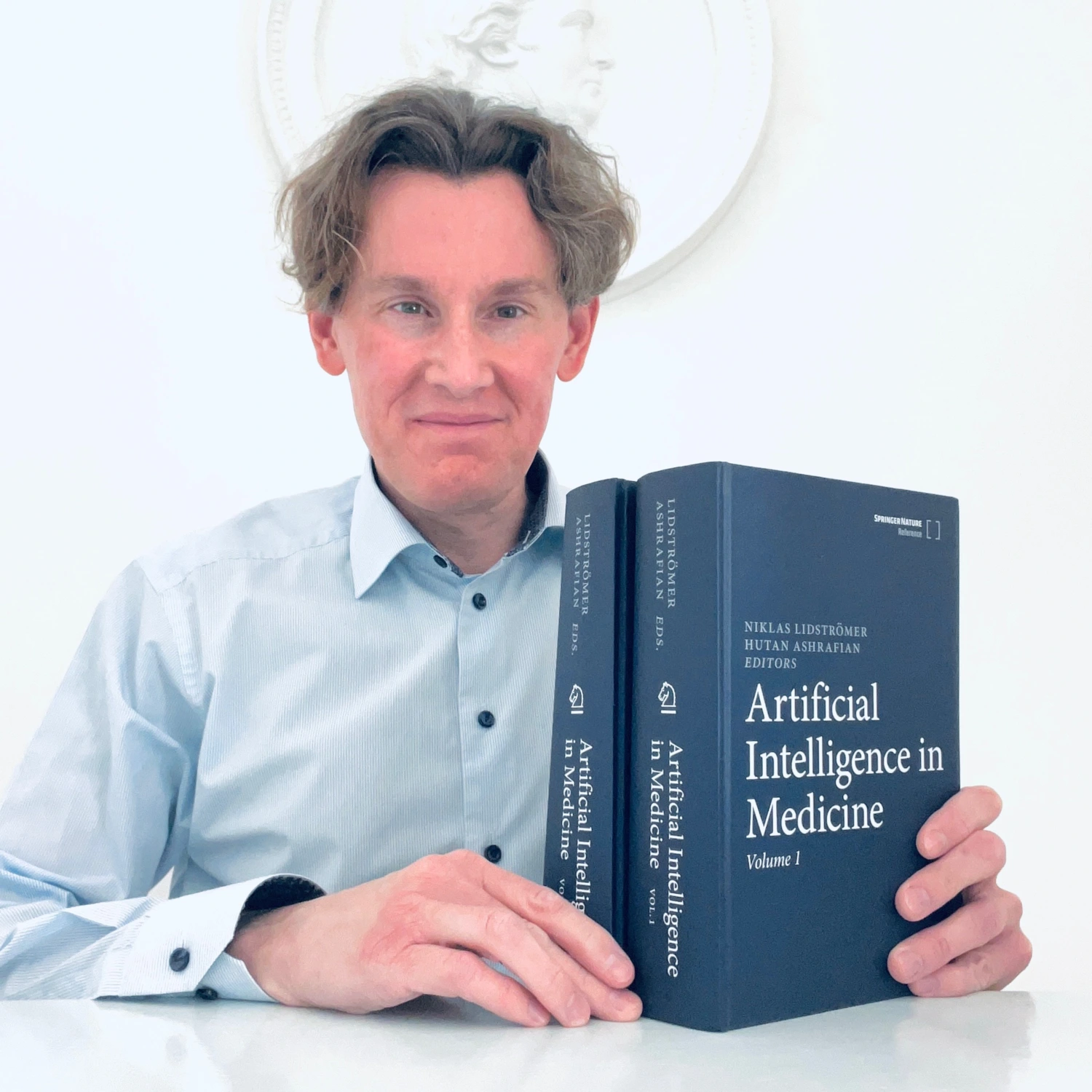picture:
Title:
World Map with Faces by GPOC Image: N/A
The authors' vision is to work towards the global implementation of GPOC, which they believe could be of critical importance for the development and dissemination of AI in medical science and healthcare.
Since 2010, Dr. Niklas Lidströmer has led the vision of a global, cloud-based, blockchain-protected, encrypted medical records platform shared between patients. It was originally known as GlobeDoc. The last five years are known as the Global Patient Owned Cloud (GPOC). This initiative is promising for developing and disseminating artificial intelligence in medical sciences and health care. Dr. Lidströmer belongs to the Eric Herlenius group at CMM.
The recently published article addresses the technical and security requirements of GPOC, focusing on patient ownership, cloud nature, cryptography, and blockchain protection.
Cloud-based patient medical records are increasing globally. This article series introduces the concept of GPOC for patient records and consists of five parts, with the now published article focusing on a systematic review and meta-analysis. It examines key technical, data, and security requirements, analyzing twelve factors, including data security, efficiency, cost, encryption, and access.
The study shows a lack of previous literature on patients' shared ownership of health data in medical records, and the absence of global standards in this field. It also emphasizes the importance of patients' shared ownership of their medical data. The study provides a universal, patient-centered medical record with patient ownership, to facilitate patient visibility, access, and active participation in healthcare. Furthermore, the article suggests that patients' shared ownership of health data constitutes a new human right.
The technical and cryptographic requirements are carefully examined through a meta-analysis that highlights a potentially globally distributed, homomorphically encrypted, blockchain-protected medical record in which patients are co-owners.
The study, conducted in collaboration with Karolinska University Library, includes a comprehensive review of 16,000 articles, followed by a meta-analysis – the first in the field.
Comparisons were made in cryptography, cost (gas), performance, efficiency, blockchain, data transfer and other parameters vital to network function, stability and security.
The GPOC series includes four more upcoming articles. It begins with a global GPOC survey that received responses from all the world's ministries of health and major international organizations, followed by a series of reviews and interviews on relevant ethics, policies and regulations. Later, the Delphi Summit brought together delegates from around the world to discuss the GPOC concept.
Finally, the GPOC technical sandbox is presented, which builds on insights from the entire series and is openly shared in order to pilot, develop and realize global GPOC.

“Extreme tv maven. Beer fanatic. Friendly bacon fan. Communicator. Wannabe travel expert.”









More Stories
Why Rare Earth Metals for Electric Cars Are Crucial for Modern Mobility
“We want to promote critical rules approach”
“A lot happened during the trip,” Jönköping County Council